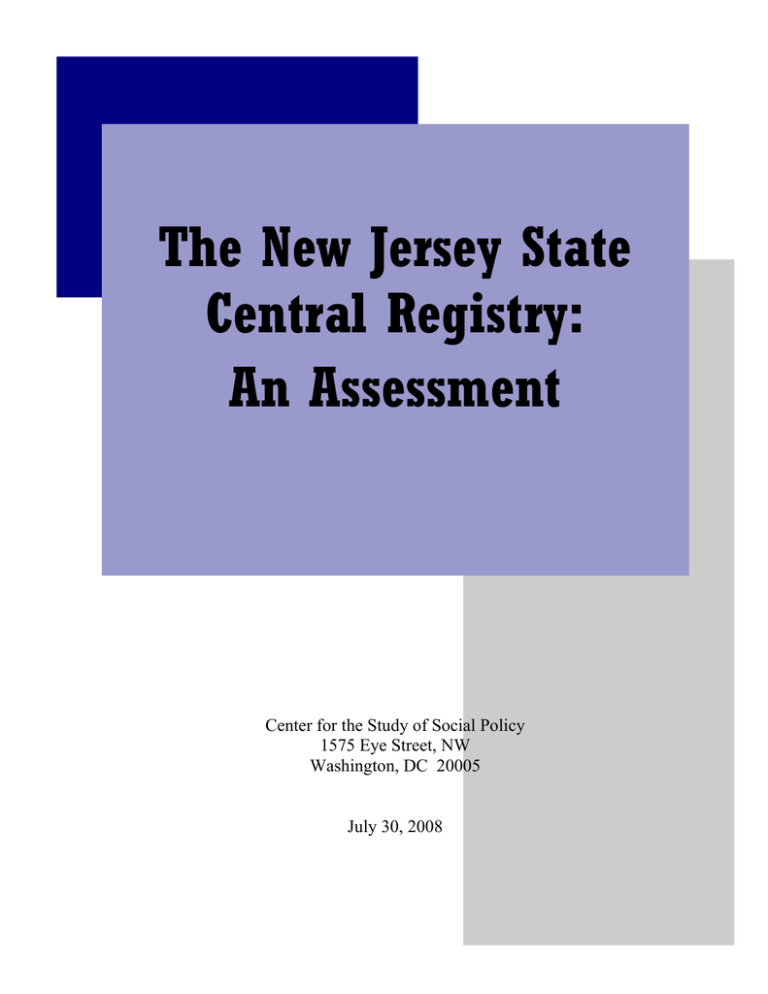In the realm of reputation and justice, the weight of an erroneous entry on a state central registry can inflict a profound and enduring burden. When innocent individuals find themselves unjustly labeled, the consequences can reverberate through their lives, tarnishing their opportunities, casting doubt upon their integrity, and diminishing their sense of self-worth.

Image: studylib.net
The state central registry, a repository of sensitive information often accessible to law enforcement and employers, can be a double-edged sword. While its intended purpose is to safeguard society, it holds the potential for perpetuating inaccuracies and perpetuating wrongful allegations. This article aims to provide an empowering guide, offering indispensable strategies and insights to assist individuals in clearing their names from the clutches of these registries.
Navigating the Legal Landscape: Understanding Your Rights
The first step toward clearing your name is grasping your legal standing. Familiarize yourself with the relevant state laws and regulations governing the central registry. Know your rights, including the procedures for disputing inaccurate or misleading information. Consult with an experienced attorney who specializes in clearing criminal records or privacy law to ensure you have a comprehensive understanding of your legal options.
Marshalling Evidence and Building a Compelling Case
To successfully dispute an erroneous entry on the state central registry, you need to gather concrete evidence supporting your claim. Obtain official documentation, such as court transcripts, police reports, or witness statements, that unequivocally demonstrate the falsity or inaccuracy of the disputed entry. Compile this evidence meticulously, ensuring its authenticity and relevance to the matter at hand.
Engaging with the Registry: Initiating the Dispute Process
Armed with your supporting evidence, initiate the dispute process by contacting the designated agency responsible for managing the central registry. Submit a formal written request outlining your case, citing the specific inaccuracies and providing compelling documentation. Be prepared to articulate your reasons for disputing the entry clearly and persuasively.

Image: www.youtube.com
Preparing for the Review and Hearing
Once your dispute is received, it is subjected to a thorough review by the registry’s staff or a designated hearing officer. Prepare for this phase diligently, anticipating potential questions and carefully crafting your responses. Gather any additional evidence that may bolster your case and support your arguments.
Exercising Your Right to a Fair Hearing
In certain cases, you may be entitled to a formal hearing before an impartial adjudicator. This hearing provides an opportunity to present your evidence, refute any counterarguments, and demonstrate why the disputed entry should be removed or corrected. Prepare diligently for this hearing, seeking guidance from your legal counsel if warranted.
Overcoming the Emotional Toll: Maintaining Resilience
Challenging inaccurate registry entries can be an emotionally taxing process. Maintaining a positive mindset and practicing self-care during this challenging time is crucial. Surround yourself with a supportive network of family, friends, or a therapist who can offer encouragement and emotional sustenance.
Embracing the Future with a Clear Record
Clearing your name off the state central registry is a triumph, a testament to your resilience and unwavering pursuit of justice. Embrace this victory with renewed confidence and determination. Your hard-earned clean record opens up a world of opportunities and a brighter future, enabling you to reclaim your reputation and live a life free from the stigma of an unwarranted label.
How To Clear Your Name Off A State Central Registry
Epilogue
Exonerating yourself from an unjust registry entry is a multifaceted journey that requires a combination of legal knowledge, strategic planning, and emotional fortitude. By adhering to the strategies outlined in this article and seeking professional guidance when necessary, you can overcome the challenges, reclaim your dignity, and pave the way for a future unmarred by the shadows of the past.